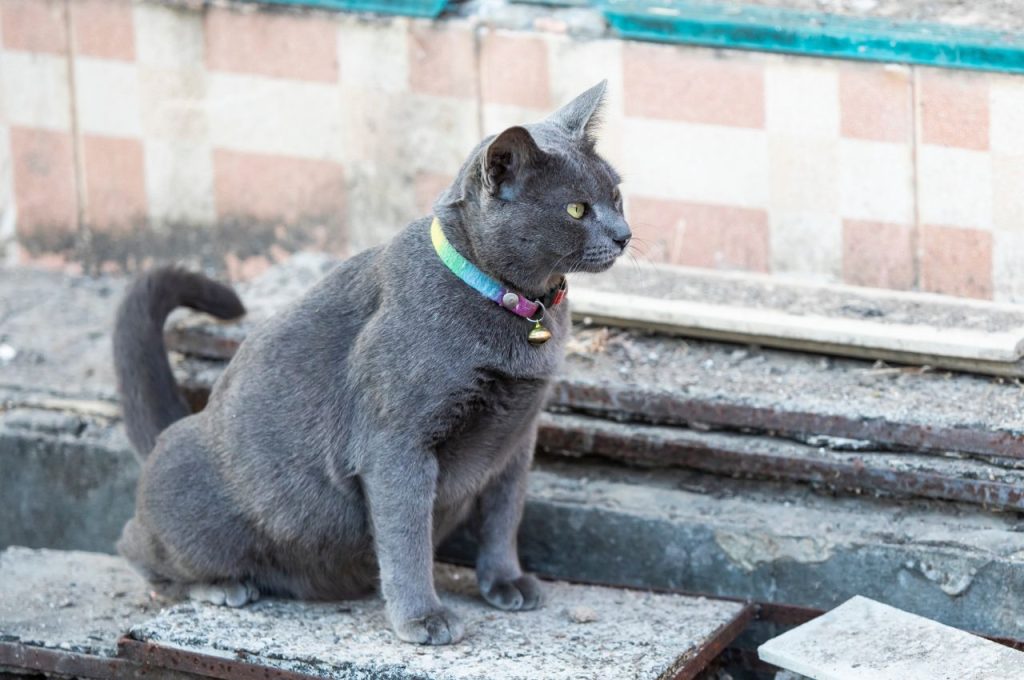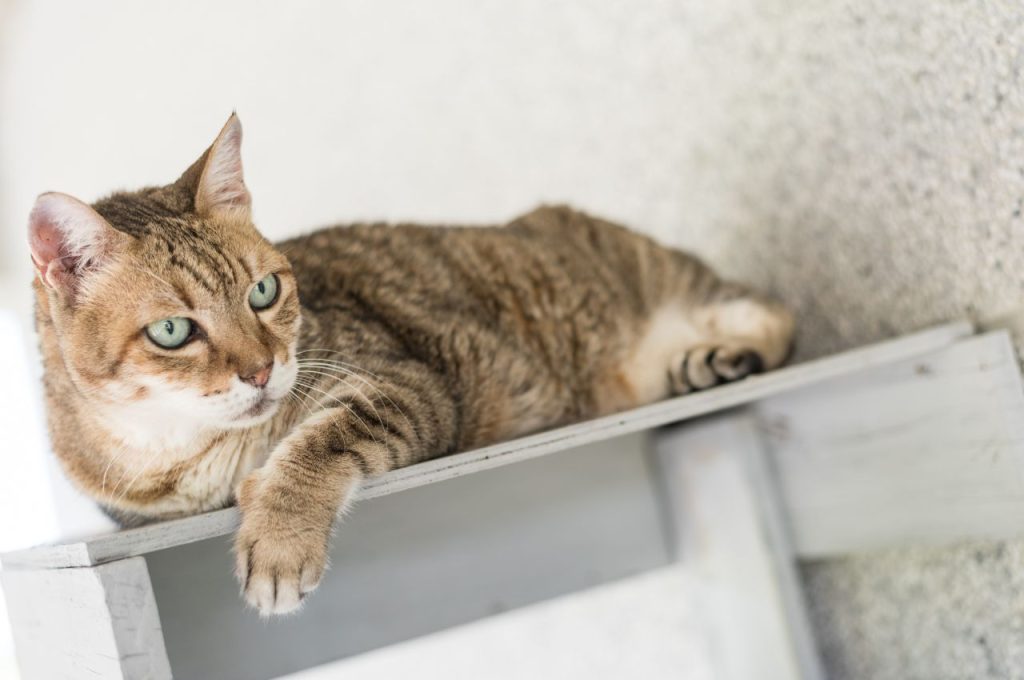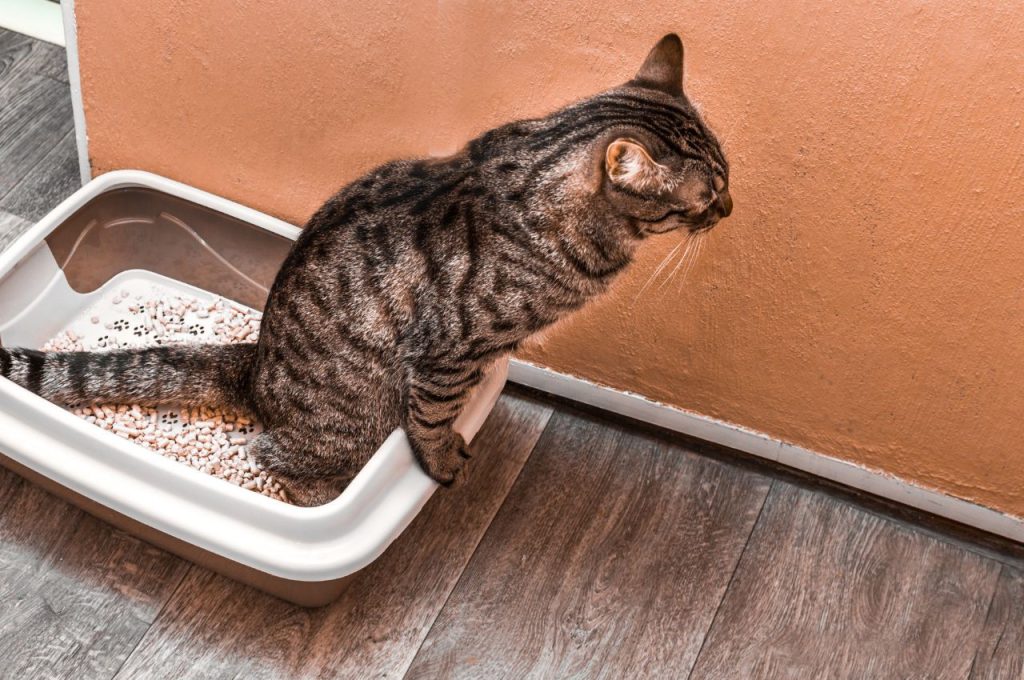To get cats to stop peeing, identify the cause and address it through cleaning, litter box management, and behavior modification. Cats are usually well-behaved, but when they start peeing outside the litter box, it can be frustrating for their owners.
Whether it’s due to a health issue or behavioral problem, it’s essential to find a solution to stop this behavior. This article will provide valuable insights and practical tips on how to get cats to stop peeing in inappropriate places.
By understanding the underlying cause, maintaining a clean environment, managing the litter box effectively, and implementing behavior modification techniques, you can help your cat learn proper bathroom habits and restore harmony in your home. So, let’s dive in and discover the strategies to tackle this issue head-on.
Understanding The Reasons For Inappropriate Urination
Understanding the Reasons for Inappropriate Urination Inappropriate urination is a common problem faced by many cat owners. It can be frustrating to deal with, but before we can address how to get cats to stop peeing where they shouldn’t, it’s important to understand the reasons behind this behavior.

Cats may engage in inappropriate urination due to various factors, such as medical conditions, territorial marking, and litter box issues. Medical Conditions One of the key factors behind inappropriate urination in cats is the presence of underlying medical conditions. Cats may urinate outside the litter box if they are suffering from urinary tract infections (UTIs), bladder stones, or even kidney disease. Additionally, older cats may experience incontinence or age-related changes that contribute to their inability to control their bladder. It’s crucial to rule out any potential medical issues by consulting with a veterinarian. Seeking professional advice will ensure that any necessary treatment is provided, and appropriate measures are taken to address the issue.
Territorial Marking Another reason for inappropriate urination is territorial marking. Cats are naturally territorial animals, and they use urine to mark their territory. This behavior is more commonly observed in unneutered males, but it can also occur in spayed or neutered cats of both genders. When cats urinate outside the litter box as a form of territorial marking, it often results from a perceived threat or a change in their environment. This can include the presence of other animals, the introduction of new people, or even the rearrangement of furniture in the house. Understanding and addressing the underlying triggers of territorial marking can help in curbing inappropriate urination behavior.
Litter box issues are another important aspect to consider when dealing with inappropriate urination. Cats are clean animals and have specific preferences for their bathroom habits. If the litter box is dirty, in an undesirable location, or has a type of litter that the cat finds uncomfortable, they may choose alternative areas to relieve themselves. Unwanted experiences or negative associations with the litter box can also lead to the development of aversions. By ensuring the litter box is kept clean, accessible, and using litter that your cat is comfortable with, the chances of inappropriate urination can be significantly reduced.
To summarize, understanding the reasons for inappropriate urination in cats is crucial to finding effective solutions. Considering medical conditions, territorial marking, and litter box issues will help identify the underlying causes and take appropriate actions. Remember, consulting with a veterinarian is essential to rule out any medical issues and to guide you toward the most suitable solutions for your cat’s specific situation.
Addressing Medical Conditions
One of the key causes of urination issues in cats is an underlying medical condition. It’s important to identify and address these conditions to help your feline friend regain their litter box habits. Here, we will discuss the necessary steps to take when it comes to addressing medical conditions causing inappropriate urination in cats.
Consulting A Veterinarian
A crucial first step in addressing any medical condition in cats is to consult with a trusted veterinarian. They have the expertise to diagnose and provide appropriate treatment for your cat’s specific condition. Veterinary professionals can conduct a thorough physical examination, order necessary lab tests, and even perform imaging studies to accurately identify the underlying cause of urination issues.
Treating Urinary Tract Infections

If your veterinarian determines that your cat has a urinary tract infection (UTI), prompt treatment is essential. UTIs can cause discomfort and increase the frequency of urination. The prescribed treatment usually involves a course of antibiotics to eradicate the infection. It’s important to follow the prescribed dosage and duration diligently to ensure complete recovery.
Managing Bladder Stones Or Crystals
Bladder stones or crystals can also contribute to urinary problems in cats. These mineral deposits in the urinary tract can cause discomfort and blockages, leading to difficulties in urination. To manage this condition, your veterinarian may recommend a special diet formulated to dissolve or prevent further formation of these stones or crystals. Increasing water intake can also help flush out the urinary system and prevent their reoccurrence.
In severe cases, when dietary management fails, surgical intervention may be necessary to remove the bladder stones or crystals. Regular follow-up visits with your veterinarian are crucial to monitor the effectiveness of the prescribed treatment and ensure the condition is improving.
Creating A Comfortable Litter Box
The litter box serves as your cat’s designated bathroom space. Ensuring their comfort while using it is crucial in modifying their peeing behavior. Here are some tips to create an inviting litter box:
- Choose a litter box that is large enough for your cat to comfortably turn around in.
- Place the litter box in a quiet and easily accessible area, away from loud noises or high-traffic areas.
- Use unscented litter, as strong fragrances might deter some cats from using the litter box.
- Clean the litter box regularly to remove any lingering odors and provide a clean environment for your cat.
- Consider using multiple litter boxes, especially in multi-cat households, to ensure each cat has access to a litter box at all times.
Providing Adequate Resources
Ensuring your cat has access to essential resources can help prevent peeing outside the litter box. This includes providing:
- Ample food and water bowls to prevent competition and reduce stress.
- Vertical spaces such as cat trees or shelves where they can perch and observe their surroundings.
- Plenty of toys and playtime to keep them mentally and physically stimulated.
- Quiet and comfortable resting areas where they can retreat when they need some alone time.
Using Behavior Modification Techniques
Behavior modification techniques are valuable tools in teaching your cat to stop peeing outside the litter box. Here are some techniques to try:

- Positive reinforcement: Reward your cat with treats and praise when they use the litter box correctly.
- Redirecting their attention: Distract your cat with interactive toys or playtime when you catch them about to pee outside the litter box.
- Using deterrents: Use odor neutralizers near previous accident spots to discourage your cat from revisiting those areas.
- Seeking professional help: If your cat’s inappropriate elimination persists despite your efforts, consult a veterinarian or a professional animal behaviorist for further assistance.
Conclusion
To solve the problem of cats peeing outside their litter boxes, it’s crucial to identify and address the underlying causes. By creating a comfortable, clean, and stress-free environment for your feline friend, you can encourage them to use their designated bathroom area.
Additionally, seeking advice from a veterinarian can prove beneficial in ruling out any medical issues.
